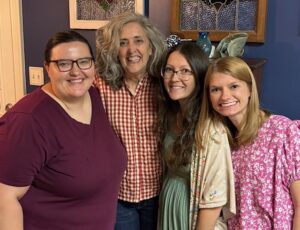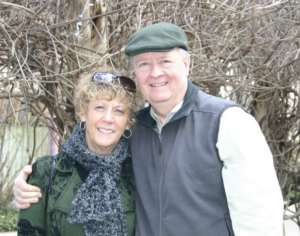The day they decided to make “The Hokey Pokey” into a staple in roller skating rinks was the day our country went downhill. Who thought it was a good idea to put wheels on the feet of a circled-up group of six-year-olds, then tell them to pick one foot up and shake it all about?
That person who thought of that was a special kind of demented.
Nonetheless, here’s what the hokey pokey gets right. When you’re putting your left foot in and taking your left foot out, you’re going to end up going around in circles. You’re unstable. It is exhausting to have yourself in two different places at once and almost impossible to keep your balance. When you’re putting your whole self in but then turning around and taking your whole self out, that’s not productive, either. That’s tough, not just on you but everyone around you.
When “Hokey Pokey” living is your default mode — “I’ll do this halfway, on one foot” or “I’ll be in until I’m not comfortable” — you never get beyond a two-foot radius of yourself and you create chaos for everyone else (I still have nightmares of being at someone’s skating-rink birthday party, standing too close to someone who fell while doing the Hokey Pokey).
Hokey-pokey postures are not for followers of Jesus. Our call requires us to be all in. Surely this was beneath the question John Wesley asked of ordinands: Are you resolved to devote yourselves wholly to God and his work? In other words, are you all in This is a question about wholeheartedness. Wesley wants to know of those signing up to spread the gospel if they are willing to give themselves completely to this work. Are you resolved to devote yourself wholly? In your study and worship and fellowship and serving and in the truth you share, are you passionately committed to the pursuit of wholeness so you can be in passionate pursuit of the presence of Christ?
Are you resolved to devote yourselves wholly to God and his work?
This is like the anti-hokey pokey question. When Wesley asked this question of his pastors, he wanted to know if the people who resolve to be church leaders are all in or if they plan to put their left foot in then take it out when things get rough. Folks who can’t be all in not only exhaust themselves; they exhaust us.
What does it mean to become whole, by biblical standards? Surely it begins with Paul’s advice to work out your own salvation daily with fear and trembling. Stay in it, Paul advises, and wrestle with what it looks like in your life. Wholeheartedness begins with a commitment to spiritual/emotional/relational healing. Let the daily wrestling expose the cracks and wounds. Deal with the unholy fears that paralyze you, leaving you stranded out there in the desert, unable to make the journey into the promises of God. Acknowledge your doubts, and dare to believe God can handle them. Become accountable to someone else who will ask the tough questions.
To become wholehearted, we must deal with our wounds and hesitations, fears and doubts even as we develop eyes to see what God sees. Then pursue the Holy Spirit. Allow the voice of the Spirit to teach you the values of God so they sink in and become part of you. Pursue the art of holiness, which goes so much deeper than good behavior.
Are you resolved to devote yourself wholly? Not half-heartedly. Not with your spare change and spare time. Not only as far as your comforts will take you. Not fearfully, but wholly to God and his work? This is the natural end of wholeheartedness: it is to be whole, holy and all in. Without that kind of vulnerable, wholehearted faith, it is impossible to please God.
(Portions of this blog are taken from my book recently published by Abingdon Press. You can find The 19 here.)








